Obstetric Anesthesiology Fellowship
The ACGME-accredited Obstetric Anesthesiology Fellowship is a 12-month program that equips trainees in advanced clinical care, including the care of healthy and high-risk parturients and pregnant women undergoing non-obstetric surgery (seven months total clinical rotation). Fellows are also required to participate in the management of patients scheduled for fetal surgery procedures.
Fourteen dedicated obstetric anesthesiologists are the primary educators in the fellowship program. In addition, faculty members in the medical school’s Department of Obstetrics & Gynecology’s Divisions of Maternal-Fetal Medicine, Neonatology and Critical Care Medicine are integral to the fellows’ education experience. All of our educators are dedicated to providing a well-rounded educational experience for anesthesiologists interested in a career in obstetric anesthesiology.
Program Director
Kaitlyn Neumann, MD, MEd
Assistant Professor of Anesthesiology
Fellowship Coordinator
Vanessa Hernandez
vanessa.hernandez3@nm.org
About the Program
Objectives
The fellowship will enable the fellow to acquire an advanced body of knowledge and a high level of skill in the management of parturients, particularly those at high risk. This should allow the fellow to assume a future leadership role in academic or private practice in the field of obstetric anesthesiology. The objectives include:
- Understanding the obstetric management of high-risk parturients.
- Understanding fetal heart rate measurement and interpretation.
- Understanding the anesthetic management and the interdisciplinary approach to the management of the high-risk parturient.
- Understanding neonatal resuscitation (American Academy of Pediatrics Neonatal Resuscitation Certification).
- Understanding the moral and ethical issues in the care of the parturient, including the balance between maternal and fetal well-being.
- Understanding the economic issues in obstetric anesthesiology.
- Organizing a functioning obstetric anesthesiology service.
- Critically evaluating the clinical literature in obstetric anesthesiology.
- Teaching obstetric anesthesiology to others.
- Carrying out a scholarly project, including study design, recruitment of patients, carrying out a study, analyzing and publishing the results.
Curriculum
Fellows in our program participate in a range of educational and clinical experiences designed to develop expertise in obstetric anesthesiology.
- Research Rotation
Each fellow participates in at least one research project during a dedicated three-month rotation. The goal is to present an abstract and publish the results. - Clinical Rotations
Fellows rotate through Maternal-Fetal Medicine (MFM) and Neonatology services in two-week blocks, gaining exposure to interdisciplinary care. - Simulation Curriculum
A formal simulation-based training program helps fellows develop critical decision-making and procedural skills. - Didactic Sessions
Weekly educational meetings are held with faculty. Once a month, fellows join MFM fellows for a joint session—typically a journal club. - Conferences
Fellows regularly attend patient care and multidisciplinary conferences to deepen their clinical insight and collaborative skills.
Rotations
- Labor & Delivery (7-8 months)
Care for high-risk patients, supervise residents and provide antepartum consultations in L&D and OR settings. - Research (3 months)
One-week blocks throughout the year. Includes study design, analysis, writing and presentation. Goal: 1 abstract + publication. - Neonatology (2 weeks)
Resuscitate neonates with NICU team in L&D. Earn Neonatal Resuscitation Program (NRP) certification. - Maternal-Fetal Medicine (2 weeks)
Rotate through MFM clinics and offices. Gain experience in early pregnancy care and antepartum fetal testing. - Blood Bank (1 week)
Work with transfusion medicine attending. Learn blood component therapy, perioperative management and reaction evaluations. - Fetal Surgery Program
Participate in procedures like TTTS laser treatment and in utero myelomeningocele repair via the Chicago Institute for Fetal Health.
Quality Improvement
Fellows will participate in at least one quality improvement project. Examples include the postpartum hemorrhage protocol, the escalation of care protocol (for parturients requiring obstetric and critical care), and the roll-out of the electronic medical labor analgesic record. Projects should aim to enhance the fellow’s engagement in multidisciplinary care of obstetric patients or improve patient safety as it applies to the fellow’s practice of obstetric anesthesiology.
Participate in a system improvement project based on the literature, quality improvement data and patient and family satisfaction data
Working with Residents
Fellows supervise residents in low-risk cases, assist with high-risk care, and step in during resident didactics.
- Rounds & Lectures
Twice-daily sign-out rounds include evidence-based discussions. Fellows attend daily resident lectures and present each topic at least once per year, supervised by faculty. - Journal Club
Fellows co-lead monthly journal clubs with attendings, joined by faculty, residents and students. - Clinical Research
Fellows support patient enrollment and data collection for clinical studies, coordinating with research nurses. - Program Oversight
Fellow-resident interactions are regularly reviewed by program leadership to ensure quality collaboration.
Conferences
- Weekly Fellow Lectures
In-depth didactic sessions on obstetric anesthesiology, including lectures and problem-based learning. Some sessions are joint with MFM fellows and supervised by core faculty. - Weekly Journal Club
Held every Friday with faculty and residents. Fellows lead at least one session per month and also join MFM journal clubs. Faculty guide evidence appraisal and discussion. - Daily Morning Conferences
Fellows join resident lecture series based on Chestnut’s Obstetric Anesthesia. Fellows lead one or two sessions per month to build teaching skills. - Grand Rounds
Fellows attend weekly departmental grand rounds and present once per year on a topic of their choice. Each fellow is paired with a faculty mentor for preparation and evidence review.
Ultrasound Workshop
Fellows will participate in an ultrasound workshop at the beginning of the year that will review the basics of ultrasound techniques and equipment. Emphasis will be placed on the use of ultrasound for focused transthoracic echocardiography, transversus abdominus plane blocks and neuraxial techniques in patients with back pathology or morbid obesity.
By the end of the workshop, the fellows should be able to decide which patients would benefit from ultrasound-guided regional anesthetic techniques, obtain optimal images, interpret the images, perform the regional technique and assess the results. There will be additional follow-up lectures throughout the year to cover more in-depth topics, including transthoracic echocardiography and ultrasound.
Simulation
The Anesthesiology RRC requires that trainees participate at least once yearly in a simulation experience, and the ABA requires that diplomates participate in a six-to-eight-hour simulation course in Part IV of its Maintenance of Certification (MOCA) program.
The proposed simulation education curriculum for the obstetric anesthesiology fellowship provides a bridging experience from trainee to practicing anesthesiologist through a dual strategy: learning through participation in simulation and learning about using simulation as a lifelong teaching and learning platform. Learn more on our Northwestern Center for Clinical Simulation page.
Our Affiliated Hospital
The Section of Obstetric Anesthesiology in the Department of Anesthesiology has primary clinical responsibilities on the Labor & Delivery Unit at the Prentice Women’s Hospital of Northwestern Memorial Hospital, a designated Level 4, high-risk obstetrical unit in the heart of downtown Chicago. The physical facility features state-of-the-art equipment for providing care to obstetric patients and their newborn babies.
Prentice performs the largest number of deliveries in the state of Illinois — over 12,000 per year. The patient population is a mix of private and service patients, routine and high-risk. The cesarean delivery rate is 27 percent (3,500 cases/year), and the labor neuraxial analgesia rate is 90 percent (11,000 procedures).
Evaluations
Fellows are evaluated quarterly. The program director and Clinical Competency Committee chair will meet with the fellow for the evaluation.
Successful completion of the program will be contingent upon meeting curricular and skills requirements as judged by evaluations. In addition, the trainee must complete at least one scholarly project suitable for publication, make one local presentation and show evidence of teaching medical students and residents.
Benefits & Wellness
In addition to McGaw Medical Center of Northwestern University benefits and wellness resources, Cardiothoracic Anesthesiology fellows receive:
- $700 educational expense account
- Funding for one national society meeting: ASA or SOAP
- Additional funding for a second academic/research meeting; fellows who present an abstract at a national meeting will receive funding for a second meeting, based on the program director's approval
- Dedicated office space with desktop computer
Faculty
- Nicole Higgins, MD, MS
- Jennifer Banayan, MD
- Joseph Bavaro, MD, MS
- Adithya Bhat, MD
- Alina Brodskaia, MD
- Alexander DeLeon, MD
- Jason Farrer, MD
- Ian Gaston, MD
- Matthew Hire, MD
- Eleanor Kenny, MD
- Carmen Lopez, MD
- Samantha Lu, MD
- Emery McCrory, MD
- Kaitlyn Neumann, MD, MEd
- Helen Pappas, MD
- Samir Patel, MD
- Feyce Peralta, MD, MS
- Katerine Perryman, MD
- Alexander Samworth, MD
- Mahesh Vaidyanathan, MD, MBA
How to Apply
All Obstetric Anesthesiology fellowship positions are filled through the San Francisco Match. Please register and apply at the San Francisco Match website.
To be considered for an Obstetric Anesthesiology fellowship position, candidates must be eligible for certification or fully certified by the American Board of Anesthesiology before fellowship training begins.
Candidates must have taken USMLE Step 3 and obtain a temporary or permanent Illinois Medical License before starting their fellowship training. Licensing information and applications can be found on the Illinois Department of Financial & Professional Regulation's website. To apply for a permanent license, the applicant must have already passed the USMLE Step 3. Please be aware that it may take up to 60 days to process and grant an Illinois license.
For more information, contact Northwestern's Office of Graduate Medical Education:
McGaw Medical Center of Northwestern University
420 E. Superior St.
Suite 9-900
Chicago, IL 60611
312-503-7975
Current and Recent Fellows
Class of 2026
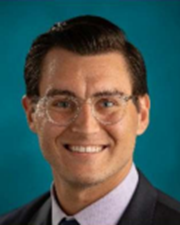
Residency: University of Illinois College of Medicine at Chicago
Medical School: Southern Illinois University School of Medicine

Residency: McGaw Medical Center of Northwestern University
Medical School: Northwestern University Feinberg School of Medicine

Residency: McGaw Medical Center of Northwestern University
Medical School: Georgetown University School of Medicine

Residency: New York Presbyterian Hospital
Medical School: George Washington University School of Medicine and Health Sciences
Class of 2025
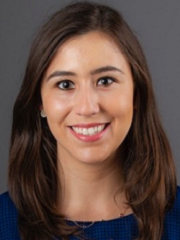
Residency: Brigham & Women's Hospital
Medical School: Rosalind Franklin University of Medicine & Science
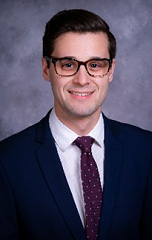
Residency: Northwestern University
Medical School: Northwestern University
Class of 2024

Residency: Emory University School of Medicine
Medical School: Emory University School of Medicine
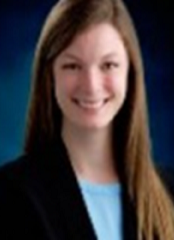
Residency: University of Chicago Medical Center
Medical School: Southern Illinois University School of Medicine

Residency: University of Michigan Health System
Medical School: University of Florida College of Medicine
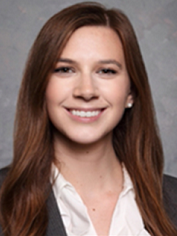
Residency: Northwestern University
Medical School: Medical College of Wisconsin
Class of 2023
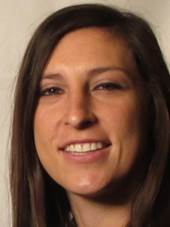
Residency: Northwestern University
Medical School: University of Texas
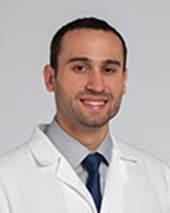
Residency: Cleveland Clinic
Medical School: Ohio State University College of Medicine
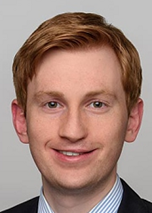
Residency: Northwestern University
Medical School: New York University School of Medicine
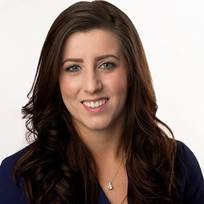
Residency: University of Arkansas for Medical Sciences
Medical School: University of Medicine and Health Services, St. Kitts
Graduate Research Resources
We offer a wide range of resources, mentorship opportunities and training to help our residents and fellows excel as physician-scientists. Explore all of the resources and hear from trainees who are making research a major part of their career development plans.